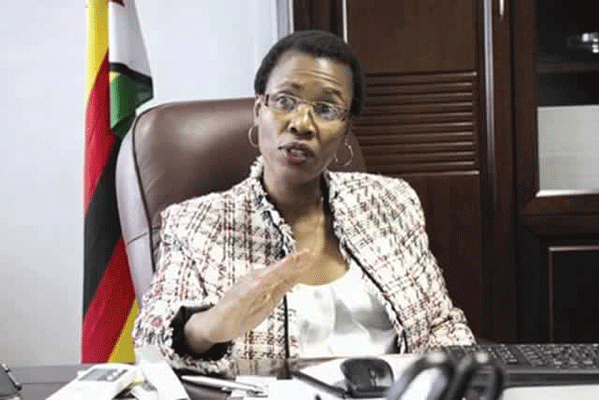
The price of fuel at most service stations has gone up by 2 cents to $1,35 and $1,20 per litre for petrol and diesel respectively at a time some fuel operators are opting for cash instead of plastic money, making life difficult for motorists.
BY TATIRA ZWINOIRA
A survey by Standardbusiness showed that Redan, Puma and Total were charging $1,35 and $1,20 per litre for petrol and diesel respectively. Trek and Zuva were charging $1,34 and $1,18 for petrol and diesel respectively while Engen was charging $1,32 and $1,18 as of Friday.
Zimbabwe has 491 licensed fuel operators.
Zuva Petroleum CEO Bethwell Gumbo said prices were subject to change based on recommendations from the Zimbabwe Energy Regulatory Authority (Zera).
The fuel increase comes following recommendations by a consultant that retail fuel operators should get an additional two cents on the profit margin.
The consultant, Genesis Analytics, said the 6 cents profit margin stipulated by Zera was affecting operators.
Alternatively, the consultant recommended that government reduces its cost build-up structure to make the fuel cheaper and ultimately more in terms of the profit margin for the operator. This route will not fly as government derives more from taxes and duties on fuel.
- Chamisa under fire over US$120K donation
- Mavhunga puts DeMbare into Chibuku quarterfinals
- Pension funds bet on Cabora Bassa oilfields
- Councils defy govt fire tender directive
Keep Reading
Fuel operators have embraced these prices as this will see their profit margins rise to 8 cents from 6 cents per litre. Operators have blamed the increase on the fuel cost build-up structure, with government enjoying the bulk of the profit margins.
A survey by Standardbusiness at several fuel operators found attendants frustrating clients into paying cash due to what insiders say is uncertainty over receiving fuel on time.
The uncertainty stems from a fear of whether there would be available funds for banks to make foreign payments as fuel is the major imported resource in the economy.
The survey revealed motorists who intended to use their cards waited for long hours before they were eventually told to pay cash or find another fuel station.
Recently, one man related his experiences in what he called a “frustrating ordeal”.
“Often, these fuel operators make you wait or tell you to visit another fuel station until they finally ask for you to pay in cash,” the motorist said.
The motorist handed this publication a receipt after purchasing fuel on account from Redan Headquarters where he was charged $1,40 per litre.
The motorist took the receipt to a Puma fuel station in Mutare.
Under the terms and conditions on the receipt, Redan said it would change the price at any time when the receipt expired, which was on average two days.
Puma Zimbabwe commercial director Cydwell Chitewe did not respond to enquiries by this publication.
Zera acting CEO Edington Mazambani said the regulator was not aware of the malpractices by the operators.
“Zera is not aware of these practices. Thank you for bringing it to our attention, we will investigate and comment on the way forward after the findings. However, anything to do with payments is regulated by the ministry of Finance through the Reserve Bank of Zimbabwe,” he said, requesting this publication to provide details of fuel operators that had turned away motorists.
“Zera carries out price reviews in line with weekly maximum regulatory prices based on the existing pricing methodology and the Petroleum (fuel pricing) Amendment Regulations (SI 20/2015); and Petroleum (fuel pricing) Amendment Regulations No. 2 (SI 100/2015).”
The price increments come at a time when Zera are still reviewing the price recommendations from Genesis before implementation, he said.
“The findings of the Genesis study are still under review and have not been adopted for implementation yet. Any changes to the pricing structure will be made public before implementation. Any prices outside the approved mechanism will need to be checked and compliance orders issued,” Mazambani said.
He said Zera monitored prices as set, using the statutory instruments on fuels pricing together with international prices as issued by Platts, adding that “any changes to the methodology will be done through a thorough consultative process involving policy makers, consumers, licensees and other key stakeholders”.
Instituting price increments outside the confines of Zera regulations are subject to a compliance letter from the authority wherein fuel operators must comply or risk losing their licence.
The Consumer Council of Zimbabwe deputy executive director Rosemary Mpofu recently said consumers could not afford any fuel hike, calling it “unfair”.
Zimbabwean fuel is the most expensive in the region, but has a lesser profit margin for fuel operators as government takes a bigger chunk in taxes and duties.
Last month, central bank governor John Mangudya said his office had not heard of the prevalence of cases in which motorists with bank cards were turned away at service stations which wanted fuel to be bought in cash.
The central bank says imports of petroleum averaged $100 million a month and nearly $1,2 billion a year.
Zimbabwe consumes an estimated four million litres a day, with government charging an average of $0,54 per litre. From that, government earns an estimated $797,89 million annually.











